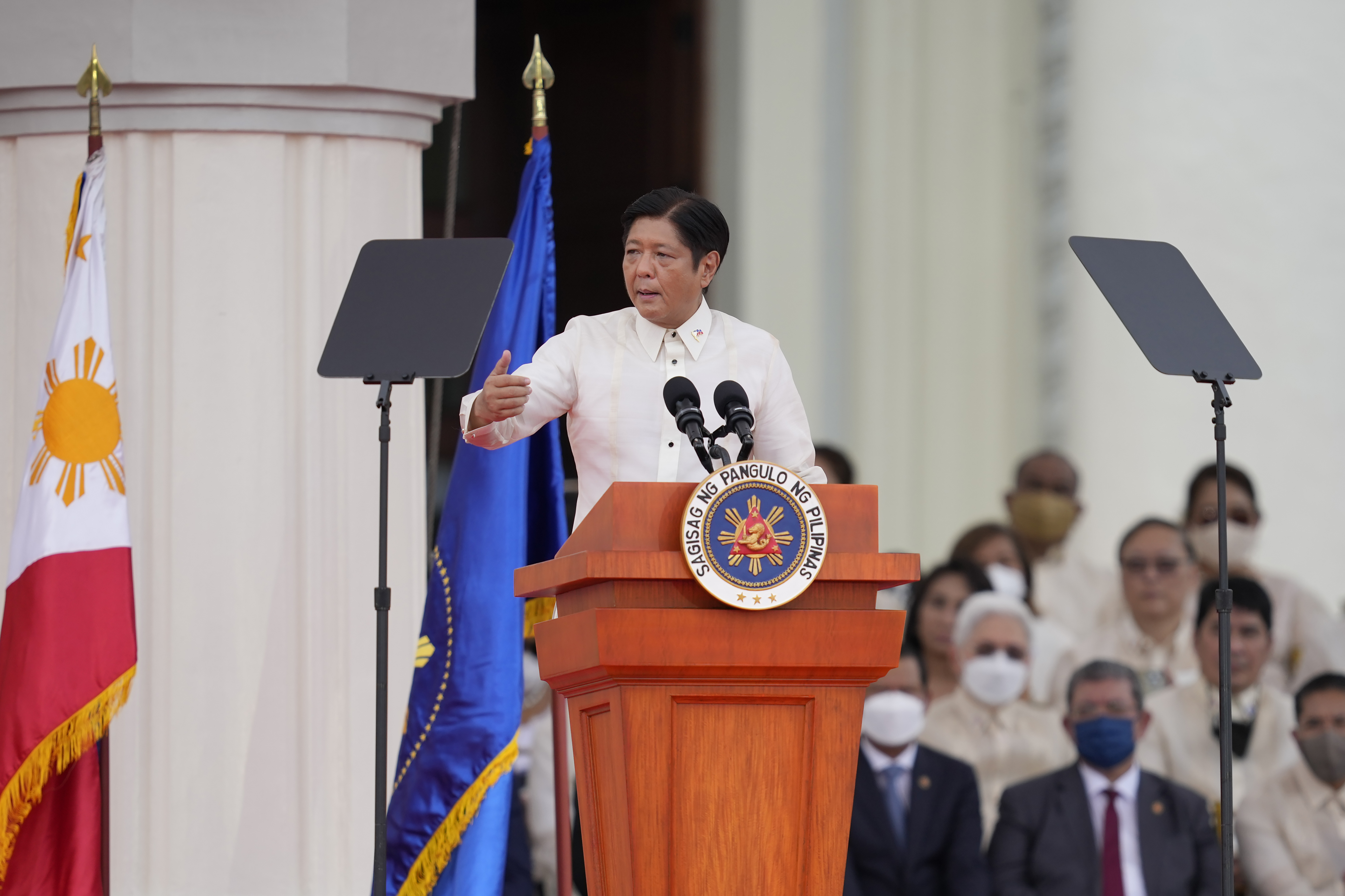Philippines
Dictator's son Marcos Jr. sworn in as Philippine President

Ferdinand Marcos Jr.
© picture alliance / ASSOCIATED PRESS | Aaron FavilaFollowing his landslide win with over 60 percent of the votes, Ferdinand “Bongbong” Marcos Jr. was sworn in as the 17th Philippine president on June 30th. His inauguration came just a few days after the Supreme Court in Manila gave its final ruling that convictions for tax evasion, resulting from the ill-gotten wealth of the Marcos family, did not disqualify Marcos Jr. from assuming office. The clearing of legal obstacles was the last step needed for the Marcos family to return to power.
Already long before as well as during the election campaign a rebranding campaign whitewashed the family image and revised the narrative of Marcos Sr.’s dictatorship. Ferdinand “Bongbong” Marcos Jr. avoided public debates during his presidential campaign in order to stay clear from inconvenient questions about his past. He presented an inclusive personality and focused on unity. This resonated with the majority of Filipino voters. Unity dominated the new President´s inauguration speech, which paid little attention to policy.
Agriculture sector: poverty and hardship
Marcos Jr. appointed respected experts to his economic team. He and his team will need to address soaring gas prices and rising inflation, including increasing cost for rice, the staple food for Filipinos. Stressing his priority to ensure food security, the new Philippine President, who according to media reports never completed his undergraduate studies, appointed himself as Agriculture Secretary. He promised to modernize the agriculture sector, which has long been associated with poverty and hardship. As Agriculture Secretary, Marcos Jr., who´s family is known for corruption, will have access to a multibillion coco levy fund, which former President Rodrigo Duterte released during his final days in office.
Marcos Jr. also appointed the country´s new Vice President, Sara Duterte, daughter of former President Rodrigo Duterte, as Education Secretary. Critics fear that Marcos Jr. and Sara Duterte will continue historical revisionism and disinformation by projecting Marcos Sr.´s dictatorship as a “golden era”. With history lessons having been removed from the school curriculum in 2014, Filipino students are not educated about the atrocities of the Marcos family during the Martial Law period.
Two days before the inauguration of the new President, the Securities and Exchange Commission of the Philippines affirmed the license-revocation of the news-website Rappler. Rappler, founded by Nobel Peace Prize winner Maria Ressa and one of the few remaining independent media outlets in the Philippines, will appeal. In 2020, the media network ABS CBN was forced to shut down. On the other hand, there is a plan to accredit vloggers, who are known for biased reporting and hate speech, to government briefings and press conferences.
A man who "got it done"
Former Senator Leila de Lima, a fierce critic of former president Duterte, remains in jail. She has been detained since 2017 on fabricated charges. Two witnesses revoked testimonies against her and there have been numerous calls for her release - to no avail. Mrs. de Lima now called on President Marcos Jr. to restore the Philippines’ membership in the International Criminal Court (ICC), which is investigating a "war on drugs", that killed thousands during the presidency of Rodrigo Duterte. In 2018, Duterte withdrew the Philippines from the ICC, which continued to examine anyway. Marcos Jr., the new president, has yet to declare whether he intends to cooperate with that ICC investigation or not. He did promise a “high level of accountability” in terms of human rights and a “continuation of the ‚war on drugs‘ within the framework of the law.”
During his inauguration speech, President Marcos Jr. described his father, the former dictator, as a man, who "got it done; sometimes with the needed support; sometimes without." Marcos Jr. added: "So will it be with his son."